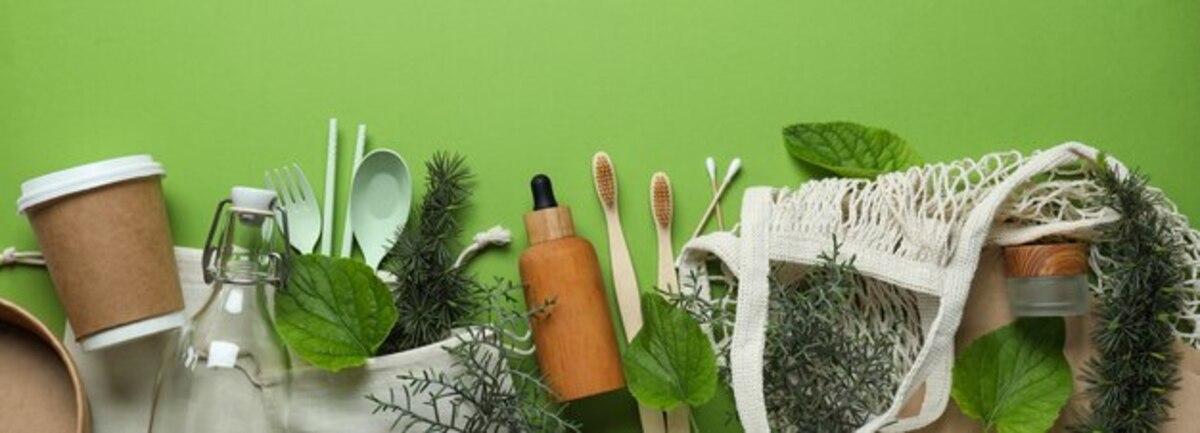Strategies for eco-friendly maintenance that cares for your home

Strategies for eco-friendly maintenance that care for your home are key to achieving a healthy and sustainable environment. In Costa Rica, where nature is part of our identity, adopting maintenance practices that respect the environment not only benefits our home but also our planet. Through simple changes in our daily habits, we can reduce the use of harmful chemicals and promote a greener lifestyle. Discover how you can implement these effective strategies and keep your home in optimal condition while caring for the environment.
The importance of ecological maintenance at home
Eco-friendly maintenance at home is not only about taking care of the space we live in but also about preserving the health of the environment around us. By opting for sustainable practices, such as using biodegradable cleaning products or implementing recycling systems, we are contributing to waste reduction and the decrease of pollutants in our surroundings. This is especially relevant in places like Costa Rica, where biodiversity is an invaluable treasure. Adopting these strategies means acknowledging our responsibility towards the planet and taking active steps to protect it.
Additionally, eco-friendly maintenance can improve air quality and overall well-being within the home. Many conventional products contain chemicals that can be harmful to both our health and the environment. By choosing natural and organic alternatives, we not only create a healthier environment for ourselves and our families, but we also promote a culture of respect for natural resources. The sum of small everyday actions can lead to a significant impact on environmental sustainability, allowing us to live in harmony with our surroundings while enjoying a clean and safe home.
2. Natural products for effective cleaning
Natural products are an excellent alternative for achieving effective cleaning at home without compromising our health or the environment. Ingredients like vinegar, baking soda, and lemon are not only economical but also possess disinfectant and deodorizing properties that make them ideal for various cleaning tasks. For example, white vinegar is a powerful cleaner that can remove stains and disinfect surfaces, while baking soda acts as a gentle abrasive that helps eliminate tough dirt. Incorporating these elements into our cleaning routine not only reduces exposure to toxic chemicals but also contributes to a safer and healthier home.
In addition to their effectiveness, natural products are biodegradable and less harmful to our local ecosystems. Using homemade solutions means reducing the amount of plastic waste generated by commercial product packaging and decreasing water pollution. By opting for simple and accessible ingredients, we can create customized multi-purpose cleaners that cater to our specific needs. For example, combining tea tree essential oil with water creates a powerful natural disinfectant with antimicrobial properties. Adopting this approach not only improves our immediate environment but also fosters a deeper connection with nature by being aware of the impact of our daily choices on the planet.
3. How to reduce water consumption during maintenance
Reducing water consumption during home maintenance is a key strategy for contributing to a more sustainable environment. One of the most effective practices is rainwater harvesting, which can be used for irrigation or cleaning. Installing a collection system on your roof and channeling the water to a reservoir will allow you to take advantage of this natural resource, decreasing dependence on municipal supply and helping to conserve local aquifers. Additionally, using hoses with regulating nozzles or drip irrigation systems can optimize water use in gardens and plants, ensuring that every drop counts.
Another way to reduce water consumption is to adjust the frequency and duration of activities that require its use. Performing tasks such as washing dishes, laundry, or cleaning surfaces in full loads helps maximize the efficiency of the water used. Dry cleaning techniques can also be implemented or reusable cloths can be used instead of disposable damp cloths, which minimizes the need for water. Additionally, considering the installation of water-saving devices on faucets and showers can make a significant difference by limiting the flow without sacrificing comfort. Adopting these small yet effective practices not only reduces your water footprint but also fosters a more conscious and responsible household culture towards our natural resources.
4. Strategies for efficient waste management
Efficient waste management is essential for maintaining an eco-friendly home and contributing to environmental conservation. One of the most effective strategies is the implementation of recycling at home. Separating recyclable materials, such as paper, cardboard, plastic, and glass, not only helps reduce the amount of waste that ends up in landfills but also allows these materials to be reused instead of discarded. To facilitate this process, recycling stations can be set up in different areas of the home, where the whole family can participate actively and learn about the importance of recycling correctly.
Another key strategy is the reduction and reuse of products before opting for recycling. This involves being aware of daily consumption and seeking sustainable alternatives, such as using reusable bags for shopping or choosing products with less packaging. Additionally, encouraging the use of reusable items instead of disposable ones significantly helps reduce the waste generated. For example, opting for reusable water bottles or kitchen cloths instead of disposable napkins can make a big difference. By adopting these simple yet effective practices, we are not only taking care of our home but also educating future generations about the importance of environmental care.
5. Sustainable techniques for garden care
Garden care can be one of the most rewarding areas to implement sustainable techniques. One of the most effective strategies is the use of composting, which not only reduces organic waste but also enriches the soil with natural nutrients. By turning fruit and vegetable scraps and other biodegradable waste into fertilizer, a healthy cycle is encouraged that promotes the growth of vigorous plants without the need for synthetic chemicals. Additionally, this practice helps retain moisture in the soil, thereby reducing the need for frequent watering.
Another sustainable technique is the implementation of a drip irrigation system or rainwater harvesting. These solutions not only optimize water use but also allow for more efficient watering directed at the roots of plants, minimizing waste. Additionally, by selecting native or region-adapted plants, a resilient garden is created that is less dependent on intensive maintenance. These plants usually require less water and are more resistant to local pests, further reducing the need for chemical pesticides and contributing to maintaining a balanced ecosystem in your own home.
6. Renewable energies and their impact on home maintenance
Renewable energies play a fundamental role in the ecological maintenance of the home, as they allow for a reduction in dependence on polluting and costly energy sources. Incorporating systems such as solar panels or wind turbines not only decreases the carbon footprint but can also result in significant savings on electricity bills. By opting for these alternatives, homes become more sustainable and efficient spaces, contributing to less pollution and the conservation of natural resources. This transition to clean energies is especially relevant in countries with abundant natural resources, such as Costa Rica, where the sun and wind are ideal allies for generating energy.
In addition to economic and environmental savings, using renewable energy fosters a more conscious and responsible lifestyle. The installation of green technologies may seem like a high initial investment, but the long-term benefits far outweigh this cost. Regular maintenance and proper monitoring ensure that these systems operate correctly throughout their lifespan, minimizing the need for costly repairs or premature replacements. Implementing renewable energy at home not only enhances the quality of the immediate environment but also inspires others in the community to follow the same path toward a more sustainable and healthy future for all.
7. Practical tips to involve the whole family in sustainability
Involving the whole family in sustainability is essential for creating an eco-friendly and conscious home. An excellent way to start is by assigning specific tasks to each household member that align with sustainable practices. For example, the little ones can take care of recycling, while the adults can focus on reducing energy or water consumption. Creating a family calendar that marks specific days for activities such as cleaning green areas, composting, or even a simple outing to the park to learn about local flora can encourage teamwork and reinforce the importance of taking care of our environment.
Additionally, educating the family about the benefits of adopting sustainable habits is not only enriching but also motivating. Organizing family workshops where homemade eco-friendly products, such as soaps or natural cleaners, are taught allows everyone to actively participate in the process and better understand how their actions impact the environment. Educational games related to sustainability can also be implemented to make learning fun and dynamic. In this way, each family member not only contributes to the ecological maintenance of the home but also develops a sense of responsibility towards the planet that will last over time.



